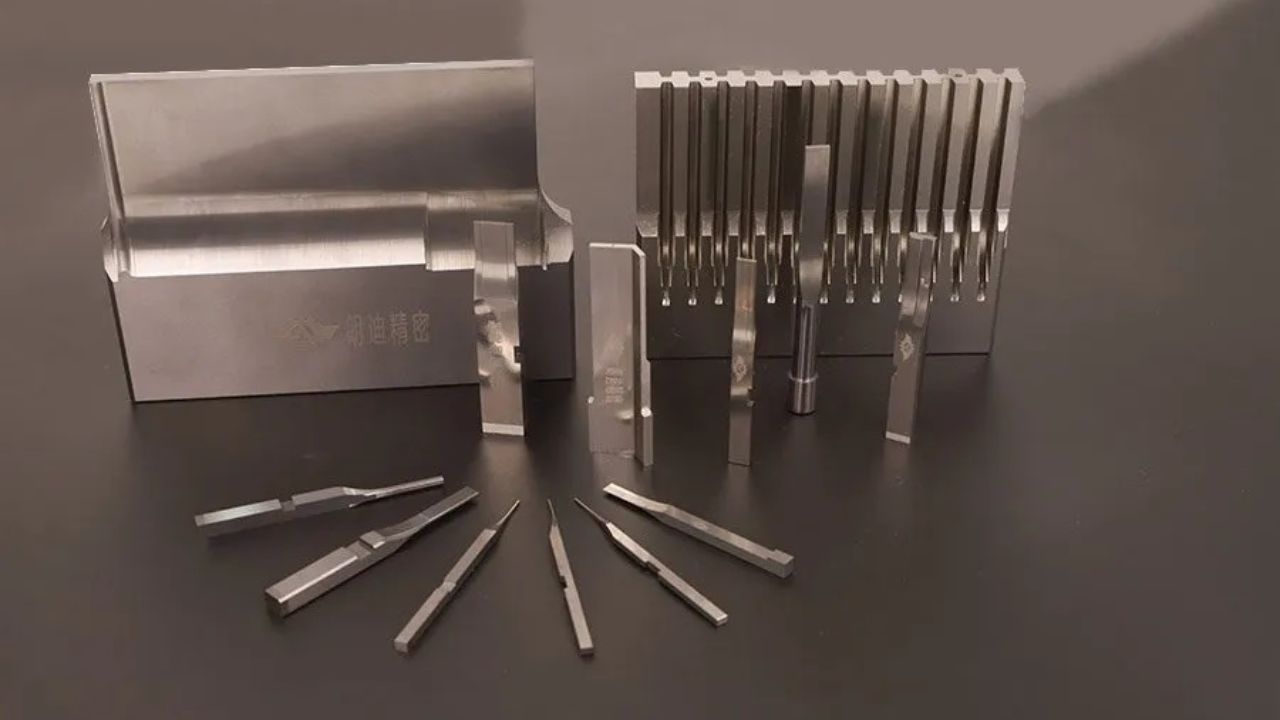The automobile market is in an ever-changing mode, and the companies are trying to achieve greater efficiency, reliability, and accuracy in their manufacturing. The stamping dies used in the production of automotive parts have also experienced great improvement, one of the areas being the carbide punch technology. The quality of carbide punches has demanded high and precise machining as vehicles have gotten more complex with more performance requirements. This paper examines the new trends in the technology of Carbide punches and how this affects car manufacturing.
Greater Application of Tungsten Carbide
Tungsten carbide is still the preferred product as a punch in the car industry because of its high hardness, wear, and life. According to recent trends, there has been an increasing preference towards custom-written tungsten carbide compositions depending on the stamping application. Car makers are also making an investment in punches with optimized grain structures together with cobalt binders, which are better in toughness but still do not compromise the high hardness needed to handle long production runs. This is to guarantee that the punches can sustain the repetitive stress of high-volume stamping before being worn out or deformed.
The Technologies in Coating
The recent development of carbide punch technology involves the use of superior surface finishes that increase the duration of its operational life and performance. Titanium nitride (TiN), titanium carbonitride (TiCN), and diamond-like carbon (DLC) are considered and are being coated on punches to reduce friction, galling, and enhance corrosion resistance. Such finishes are not only suitable to enhance the longevity of punches but also enhance the quality of punched automotive parts as they minimize burr formation and do not change the dimensions of components during the manufacturing process.
Precision Micro-Machining
The need to have micro-punches with complicated geometries has increased as automotive parts are becoming smaller and more intricate. With high-speed CNC milling and optical profile grinding, precision micro-machining methods enable manufacturers to make carbide punches with very fine profiles and tight tolerances. These technologies allow the creation of micro-punches of components like connectors, sensors, interior fixtures, and others, which must be extremely precise in order to work properly.
Integration with Industry 4.0
The use of carbide punch technology is becoming more and more part of Industry 4.0 practice, in order to enhance efficiency and traceability in manufacturing. Smart punching systems are sensor-based and are monitored by software that enables the manufacturer to monitor the wear of the tools, set the press optimally, and plan preventive maintenance. This data-based practice results in minimal downtimes, scrap reduction, and uniformity in automotive stamping processes. Coupled with digital monitoring systems, the automotive manufacturers can reach a greater result in controlling the process and improving efficiency.
High-Strength Materials Customization
A trend in the development of automotive manufacturing with lightweight and high-strength materials, including advanced high-strength steels (AHSS) and aluminium alloys, has affected carbide punch design. Standard punches might not be able to absorb the hardness and elasticity of these materials and wear faster, and/or cause damage. The new trends have been the development of customized carbide punches with special geometry, hardness gradient, and reinforced cores to work with these difficult materials without affecting accuracy or production rate.
Focus on Sustainability
Sustainability is a major factor to be taken into consideration in the automotive industry, and the carbide punch technology is not left behind. Manufacturers are looking into ways of increasing the life of punches, minimizing materials, and recycling punches. Also, the improvement in coating technologies and machining processes is providing more energy-efficient ways of production. The focus on sustainability can help automotive manufacturers to reduce their costs without neglecting even more stringent environmental laws.
Cooperation of Manufacturers and Toolmakers
The intricacy of the modern automotive parts has resulted in the tightening of cooperation between the automotive firms and the carbide punches vendors. Co-development programs also make sure that punches are tailored to particular stamping operations to combine durability, precision, and economy. Such a cooperation provides quicker prototyping, less trial and error, and enhances the overall production results, which provides manufacturers with a competitive edge in the market.
Conclusion
Carbide punch technology is one of the emerging trends that is transforming the nature of auto manufacturing through better precision, efficiency, and tool life. The use of new materials, finishes, micro-machining, and intelligent monitoring is assisting manufacturers to satisfy the increasing demands of the complex nature of vehicle designs and high-strength materials. Additionally, there is sustainability and intensive cooperation between toolmakers and manufacturers that is propelling innovation and operational excellence. With such trends still in the process of development, carbide punches will still present a critical element in the manufacture of quality and durable automotive components that can support the performance and safety criteria of the current cars.


